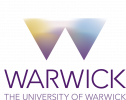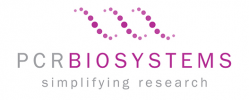© Pint of Science, 2025. All rights reserved.
If we've learnt anything over the last two years it's that 21st century medicine is awesome. And if you've ever wondered how such awesomeness happens this event from the University of Warwick is the one for you. Three researchers from Warwick will be sharing their research with you, on topics such as how rethinking technologies for detecting illnesses can make medicine fairer for everyone around the world, how we can harness bacterial 'megamachines' to make new drugs and how artificially intelligent robots can do the heavy lifiting of chemical discovery for scientists.
From Pharaohs to Fairer Health – a Rapid Exploration of Lateral Flow Diagnostics
Dr Alex Baker
(Research Fellow)
Lateral flow tests have dominated the lives of so many in the UK and other wealthy nations. But what about those who have been left behind? In this talk we will be exploring why and how we can start to rethink diagnostic technologies to better serve the world not just the wealthy.
Harnessing bacterial mega machines to make new drugs
Lona Alkhalaf
(Senior Researcher in Chemistry, University of Warwick)
Bacteria produce lots of different chemicals to try and outcompete other bacteria. These chemicals are made by enzymes within the bacteria that take small building blocks and stitch them together then modify them to make very complex chemical structures. But they are not always perfect for people straight from the bacteria. We will look at both identifying new ‘natural products’ and working out the details of how these enzymes work so we can redesign them to adapt the molecules for human use.
Rise of the robo-chemists: How robots and AI are transforming chemistry forever
Scott Habershon
(Professor in Chemistry, University of Warwick)
There are more different possible drug molecules than there are stars in the entire universe - in the face of these odds, chemists need to be smart in how they search for new drugs to cure diseases. Here, I’ll show how artificially intelligent robots that learn on their own are increasingly doing the hard work of chemical discovery for us - and what that means for the next generation of chemical scientists.
Map data © OpenStreetMap contributors.

